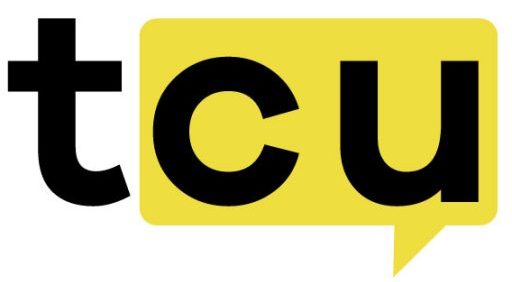During the initial stages of online gaming, users created empires in the virtual world, exchanged online resources, and accumulated in-game currencies. At the time, it appeared to be mere entertainment, but in retrospect, it turned out to be the foreshadowing of something much bigger. In the digital currency-driven economy, today what used to be fictional economies become all too real. What were considered niche products by tech-savvy users, cryptocurrencies are now transforming the nature of creating, exchanging, and owning value in digital environments—including enabling seamless cross-border transactions that were once complex or restricted. Gaming was the movement that started this shift, and it is currently transforming the larger economy.
Gaming: The Original Crypto Sandbox
Long before Bitcoin or Ethereum emerged, gamers were already familiar with digital economies through virtual worlds like World of Warcraft, RuneScape, and Second Life. These games had sophisticated economic systems, complete with virtual currencies, item trading, and even inflation. Players unofficially exchanged virtual gold, weapons, and skins for real-world money, developing an early understanding of digital assets‘ potential real-world value. Although these in-game items initially seemed purely virtual, they helped bridge users’ psychological acceptance, laying crucial groundwork for the eventual transition to cryptocurrencies—another intangible yet valuable digital asset class.
The Rise of Blockchain and NFTs in Gaming
Digital ownership experienced a new dimension of security and decentralization with the introduction of blockchain.Ethereum and other cryptocurrencies made it possible to develop smart contracts to introduce online transaction transparency and programmability. This enabled the entry of a different type of gaming experience- Play-to-Earn (P2E), which allowed players to earn actual cryptocurrencies by performing activities within the games. Games such as Axie Infinity, The Sandbox, and Decentraland went a step further to implement this concept.
The players were able to breed digital pets, to make artificial real estates or avatar wearables, all in the form of NFTs (Non-Fungible Tokens) that could be sold, purchased, or traded. These NFTs were not mere collectibles, but they were investments, both income generators and a digital identity. Combining blockchain and gameplay, the gaming platforms started to operate as micro-economies
User Adoption – Gaming vs. Cryptocurrency (2021–2024)
| Year | Gamers Engaged in Digital Economies | Crypto Wallet Users |
| 2021 | 2.3 billion | 75 million |
| 2022 | 2.6 billion | 130 million |
| 2023 | 2.9 billion | 180 million |
| 2024 | 3.1 billion (est.) | 250 million (est.) |
Crypto’s Leap into the Broader Digital Economy
What began in gaming is now influencing finance, art, entertainment, and business. Cryptocurrencies have moved beyond niche platforms and are now integrated into mainstream services. Companies like PayPal, Visa, and Shopify have enabled crypto payments. Stablecoins such as USDC or USDT allow users to transact without the volatility traditionally associated with crypto.
Decentralized Finance (DeFi) further extends the gaming ethos into the financial sector. DeFi platforms allow users to lend, borrow, stake, and earn interest on their crypto—without relying on banks or intermediaries. Just as gamers learned to maximize profits through in-game strategies, today’s crypto users apply similar logic to manage digital portfolios.
The Creator Economy and Digital Ownership
It started as a phenomenon in the world of gaming and now it affects financial, art, entertainment, and business.Cryptocurrencies are no longer a niche product, but rather incorporated into popular services. Crypto payments have been facilitated by companies such as PayPal, Visa and Shopify. Using a stablecoin like USDC or USDT can enable users to trade without the volatility that is characteristic of a cryptocurrency. The DeFi industry continues the theme of gaming applied to the financial domain as well. DeFi protocols enable crypto owners to deposit funds by lending, borrowing, staking, and even collecting interest payments without third parties or banks.Like gamers have developed strategies to maximize their in-game profit, now crypto users employ the same principles in order to maintain their online portfolio.
The Creator Economy and the Digital Ownership
Cryptocurrencies will have one of the most profound effects on the creator economy. Much like gamers used to trade skins and weapons, artists, musicians, video makers, and writers can now turn their work into NFTs. Websites such as OpenSea, Zora, and Sound.xyz enable artists to sell to their audience without massively undermining middlemen. Furthermore, micro-ownership is possible through block-chain. Fans will be entitled to have parts of their favorite artist royalties or access rights. The concept of DAOs (Decentralized Autonomous Organizations) has also become a community in which its members vote together on the funds, projects, or any form of creative enterprise they want to take about what to do with it. It is not simply economic transformation, but a change in the process of community building and their government.

Challenges and Concerns
Despite the rapid expansion of cryptocurrencies and blockchain-based economies, several critical challenges remain:
- Volatility: Crypto markets are notoriously unstable. Sudden fluctuations in coin prices can erode trust, especially for newcomers and businesses looking for financial predictability.
- Fraud and Scams: Scammers have hit the crypto market with big time rug pulls, NFT drops, social media scams, and phishing.Lack of regulation will only leave individuals to protect themselves, and protect themselves with community-based tools.
- Environmental Impact: Even though Ethereum has now transitioned to a more efficient and energy-efficient proof-of-predominance process, older blockchains (such as Bitcoin) continue to use tremendous volumes of energy, which are ethically questionable.
- Regulatory Uncertainty: The global governments are yet to decide on the classification and regulation of cryptocurrencies, NFTs and DeFi platforms. Such confusion can prevent innovation or cause incoherent legal systems.
- Payment Integration Barriers: Online shopping payment barriers explain why a number of businesses have problems adopting crypto since they do not have any infrastructure or any easy-to-use tools where transactions can be made. This is where UniPayment solutions belong – they provide solutions with a unified platform or platform that allows a merchant / platform to receive payments in multiple currencies without any extra effort. With simplified payment flows and cross-chain support,
The Road Ahead: Merging Virtual and Real Economies
With the development of technology, the line between digital and physical economies will fade. The Metaverse, a kind of virtual collective space bringing together gaming, social media, work, and commerce, relying on cryptographic infrastructure. In these spaces, virtual property is bought and sold as NFTs, identity is linked to crypto wallets and goods are purchased with cryptocurrencies.
Companies are already experimenting on how to be around in these virtual worlds, offering branded experiences, events and virtual stores. Education, healthcare and governance are not too far. The cross-platform wallets, interconnected tokens as well as decentralized identity tools will play a pivotal role in facilitating this transition.
Conclusion
The mechanism that seemed to be a starter in the world of fantasy adventuring has grown to be an influential entity in the global sphere of finance and culture. The logic of a gaming economy has given rise to cryptocurrencies which remake rules of ownership, work and engagement of people with the digital world. Whether it be trading gold in online adventures, or buying blockchain tokens and NFTs, there is a change in digital experience value perception.
Wordcount – 1050
Keywords: Crypto payments, blockchain technology, digital economy
Publishing website: https://www.thecryptoupdates.com/
Authority website: https://dashdevs.com/blog/digital-wallet-types-guide/
![]()


